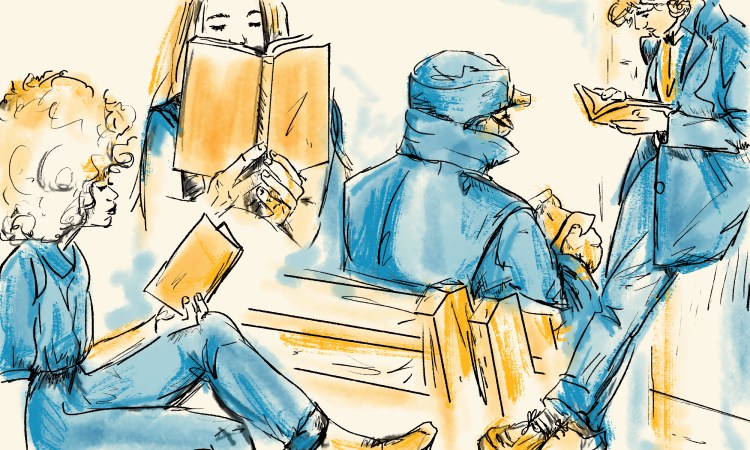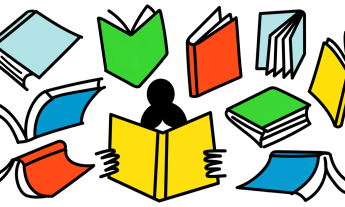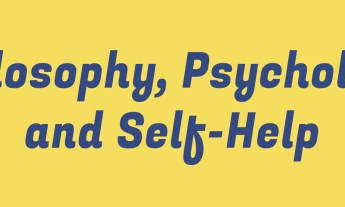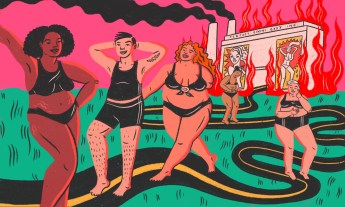
Clearer, Closer, Better: How Successful People See the World by Emily Balcetis (TED Talk: Why some people find exercise harder than others)
Many of us look at high achievers and envy how they seem to navigate their lives with ease. In Clearer, Closer, Better, social psychologist Emily Balcetis tells readers that success might be a matter of perspective — specifically, how you see your objectives and ambitions and how you decide to tackle them. By drawing on her own research and other research in vision science, cognition and motivation, she comes up with four strategies (narrowing your focus of attention, “materializing” with checklists and assessments, changing your frame of reference, and having a wider bracket) that you can apply to your life and reach your most sought after goals.
Creative Care: A Revolutionary Approach to Dementia and Elder Care by Anne Basting (TED Talk: How to meaningfully reconnect with those who have dementia)
Dementia is a reality in so many lives around the world: Globally, more than 50 million individuals are believed to be living with dementia, with nearly 10 million new diagnoses every year. In an effort to connect with those who have the disease, gerontologist Anne Basting has conducted research in elder-care settings for more than 25 years. After finding that something as simple as asking “beautiful questions” — open-ended queries without “yes” or “no” — can spark a response in some patients, she’s developed a ground-breaking, evidence-based method that uses the creative arts as the basis. In Creative Care, you’ll learn how she created her transformative methods that can help us remain close with the ones we love.
How We Show Up: Reclaiming Family, Friendship, and Community by Mia Birdsong (TED Talk: The story we tell about poverty isn’t true)
Why do some people seem to have it all yet still feel unsatisfied? The missing piece might be a sense of community, says family activist Mia Birdsong. “Only 26 percent of us know most of our neighbors. Not having a deep connection is causing us mental and physical harm,” writes Birdsong in How We Show Up. In her book, she shares encouraging stories, interviews and research to help us understand the benefits that we can gain from having stronger ties and greater support and accountability in our lives.
Humankind: A Hopeful History by Rutger Bregman (TED Talk: Poverty isn’t a lack of character; it’s a lack of cash)
From acts of violence to the insensitive (and worse) pronouncements of public figures, it’s easy to wonder whether humans are inherently good or not. Historian Rutger Bregman rebuts such skepticism, arguing that kindness is an innate trait that we all possess. By taking us through vivid, real-life examples — from the bias towards fairness found in infants and toddlers to a takedown of the Stanford prison experiment — Bregman shows us positive qualities have been the driving force in the story of humanity.
Friendship: The Evolution, Biology, and Extraordinary Power of Life’s Fundamental Bond by Lydia Denworth (TED Talk: The science of friendship)
Beyond common interests and circumstances, how do we end up with the friends that we have? Science journalist Lydia Denworth explains why friendships form — in humans and in animals — and how they end up affecting us, our bodies (from our immune systems to our brain waves), and our lives. Sounds like the perfect read for a book club made of science-minded friends.
The Future We Choose: Surviving the Climate Crisis by Christiana Figueres (TED Talk: The inside story of the Paris climate agreement) and Tom Rivett-Carnac (TED Talk: How to shift your mindset and choose your future)
In The Future We Choose, diplomat Christiana Figueres and political strategist Tom Rivett-Carnac — two of the architects of the landmark 2015 Paris Agreement — dig deeper into the issue of climate change. In their book, they argue that how we choose to live will ultimately determine the future we get. They offer a pair of possible paths: one of what the planet will be like if the Paris climate targets aren’t met by 2050, and one of a carbon-neutral, regenerative world. The result is a bracing look at the potential consequences of our collective actions — and a powerful motivation to do something now about it.
Do Nothing: How to Break Away from Overworking, Overdoing, and Underliving by Celeste Headlee (TED Talk: 10 ways to have a better conversation)
“We are digging deeper and deeper into a hole that will eventually bury us if we don’t stop,” writes radio journalist Celeste Headlee in her new book. The “hole” that she’s referring to is burnout, and she believes we’ve ended up there because of our society’s emphasis on hyperproductivity at all costs. Fortunately, her solution is quite simple: Just do less. This will relieve our exhaustion and — counterintuitively — allow us to actually achieve so much more. Plus, she says the impact of stillness will ripple throughout our lives, paving the way for more open and genuine interactions with others. (Read an excerpt here.)
A Beginner’s Guide to Japan: Observations and Provocations by Pico Iyer (TED Talk: Where is home?)
Japanophiles and armchair travelers, rejoice. Pico Iyer is a writer who’s best known for his wry, graceful accounts of different countries and cultures. For more than 30 years, Iyer — a British-born man of Indian descent — has lived in Japan for more than 30 years, and here, he explores the characteristics and quirks of his adopted home, such as its wide variety of vending machines (per capita, Japan has the highest number on earth!) and its proliferation of themed hotels. His delightful experiences will offer you genuine insight into the things, large and small, that make Japan so special.
Survival Math: Notes on an All-American Family by Mitchell Jackson (TED Talk: Should “blackness” exist?)
Writer. Filmmaker. Advocate. Those are just three of the titles that Mitchell Jackson carries. But he’s also had to deal with the judgments and stereotypes that come with some of his other life experiences, such as having a history of gang involvement and going to jail as a young Black man. In his TED Talk, Jackson spoke about how “blackness” is not a monolithic experience and questioned whether the term should be used at all. This book showcases the diverse narratives of some of his family members and other members of his community, and reading it will add a welcome new dimension to the term “all American”.
Enemy of All Mankind: A True Story of Piracy, Power, and History’s First Global Manhunt by Steven Johnson (TED Talk: Where good ideas come from)
In previous books, Steven Johnson has tackled subjects as varied as the cholera epidemic that afflicted Victorian-era London, the origin of shopping malls, and the US military’s successful capture of Osama bin Laden. He specializes in taking historical events and showing us their often far-reaching and unexpected effects. Here, he brings his storytelling skills to the subject of British pirate Henry Every. Over a two-year period in the 17th century, Every captured roughly a dozen ships and hundreds of thousands of pounds (or the equivalent of millions of dollars) of plunder, leading to a massive manhunt. Johnson argues that Every’s exploits led to the development of nothing less than multinational capitalism (!). You’ll have to read it to believe it.
See No Stranger: A Memoir and Manifesto of Revolutionary Love by Valarie Kaur (TED Talk: 3 lessons of revolutionary love in a time of rage)
It can seem hopelessly idealistic or optimistic to offer love as the answer to society’s major problems, but it can actually be one of the greatest weapons, according to activist, filmmaker and civil rights lawyer Valarie Kaur. In her TED Talk and this book, Kaur invites people to consider the transformative power of what she calls “revolutionary love”. The daughter of Sikh farmers in California, she shares her experiences and explains how events like the murders of Sikhs after the September 11 attacks and fights against systemic injustices shaped her path to self-discovery. Reading See No Stranger will make you realize that we share more in common than we may think and that we should use our commonality to really see each other.
Antiracist Baby by Ibram X. Kendi (TED Talk: How to build an antiracist world)
Children living in 2020 are witnessing societal shifts at whiplash speed, and this includes the recent protests and conversations about racism and racial injustice. One tool they can turn to is this children’s book from historian Ibram X. Kendi. “Antiracism”, he says, is a way to help people recognize and take responsibility for prejudice in their personal beliefs, workplaces and public policies to begin to change them. In Antiracist Baby, Kendi’s mindful text is combined with colorful illustrations to empower parents and young kids (note: this is a board book).
The Rules of Contagion: Why Things Spread — And Why They Stop by Adam Kucharski (TED Talk: How can we control the coronavirus pandemic?)
Political movements, internet trends, fake news. As we know, all of these are able to go viral. Epidemiologist Adam Kucharski wants us to understand that the ability for these things to exponentially spread among us can have the same negative effects as an infectious disease. In The Rules of Contagion, he aims to explain the factors behind virality and how we can better predict what happens next.
The Joy of Movement: How Exercise Helps Us Find Happiness, Hope, Connection, and Courage by Kelly McGonigal (TED Talk: How to make stress your friend)
“People who are regularly active have a stronger sense of purpose,” says psychologist Kelly McGonigal. “And they experience more gratitude, love and hope.” Many of us try — and fail — to add exercise to our daily lives, but this book can help give you the motivation to do so. McGonigal showcases the unique ways that people around the world are finding fulfillment and community and alleviating stress and pressure through physical activity. (Read an excerpt here.)
Has China Won? The Chinese Challenge to American Primacy by Kishore Mahbubani (TED Talk: How the West can adapt to a rising Asia)
Diplomat Kishore Mahbubani’s analysis of the growing presence of Asian economies — more specifically, China — was the focal point of his TED Talk, and it’s the subject of his new book. Here, he provides us with valuable insights into the unique strengths and weaknesses of China and the US and shows us how their fight for dominance is affecting their relationships with other countries. Nations caught in the middle will ultimately have to make a choice between these two giants. Which way will they go? In Has China Won?, you’ll learn about all of the potential outcomes of this epic power struggle and their consequences.
The XX Brain: The Groundbreaking Science Empowering Women to Maximize Cognitive Health and Prevent Alzheimer’s Disease by Lisa Mosconi (TED Talk: How menopause affects the brain)
In her TEDWomen talk, neuroscientist Lisa Mosconi emphasized the need to understand the effects of menopause on women’s brains. In The XX Brain, she takes a deeper dive into the many factors that cause women to experience a greater incidence of some mental disorders and health issues than men. As it turns out, the hormone estrogen appears to play a vital role in these differences. Along with the science, Mosconi gives plenty of practical advice about the specific changes that women can make in their diets and lifestyles to optimize their brain health. (Read an excerpt here.)
Manifesto for a Moral Revolution: Practices to Build a Better World by Jacqueline Novogratz (TED Talk: An escape from poverty)
Philanthropist Jacqueline Novogratz has a big idea to share in her new book, and it’s this: Moral imagination — the ability to understand other peoples’ problems as you would your own — is your key to being able to achieve significant change. Her luminous Manifesto is equal parts thoughtful memoir, inspiring account of fellow changemakers, and encouraging guide for changemakers-in-the-making. (Read an excerpt here.)
Boys & Sex: Young Men on Hookups, Love, Porn, Consent, and Navigating the New Masculinity by Peggy Orenstein (TED Talk: What young women believe about their own sexual pleasure)
Journalist Peggy Orenstein is known for her honest, thought-provoking reporting on girls and young women and sex. With her new book, she’s shifted her focus to young men. Here, she shares the results of her extensive interviews with them and with psychologists and researchers. The vulnerable and genuine responses from the young men she spoke to give the rest of us a fly-on-wall look at their experiences and attitudes towards consent, pornography and sexual violence.
Breaking Hate: Confronting the New Culture of Extremism by Christian Picciolini (TED Talk: My descent into America’s neo-Nazi movement – and how I got out)
Some people bond over their hatred for others, something that Christian Picciolini, a former neo-Nazi leader, knows all too well. Here, he offers a candid look inside the radical and violent behavior that unites those in these movements. Today, Picciolini is a self-proclaimed “hate breaker”, who assists people in breaking free from the grip of extremism. As the world is currently waking up to the devastating consequences of racism, perspectives like his can help us understand the lure of white supremacy.
At the Corner of a Dream: A Journey of Resistance and Revolution by Bahia Shehab (TED Talk: A thousands time no)
These days, so many people are looking for ways — whether through protests or legislative reform — to send the message that injustice is unacceptable. They might learn from Lebanese street artist Bahia Shehab, who uses spray paint to create powerful, breathtaking art that addresses women’s rights and politics in Cairo, New York City, Amsterdam and other major cities. In this book, Shehab explains how she’s used her art to connect with like-minded people who are just as passionate about these issues. You’ll be energized to think about how you could channel your resistance into artistic expression.
A World without Work: Technology, Automation, and How We Should Respond by Daniel Susskind (TED Talk: 3 myths of the future of work (and why they’re not true)
Many people worry about the impact of AI and other forms of automation will have on our industries, and whether it will drive us out of a job someday. Economist Daniel Susskind has spent years studying the subject and — spoiler alert! — he confirms our fears to tell us the technological takeover is well on its way. Susskind lets us know the pros and cons to these technologies, what these changes will mean for society, and how we can best prepare.
Where to Begin: A Small Book About Your Power to Create Big Change by Cleo Wade (TED Talk: Want to change the world? Start by being brave enough to care)
As a result of the recent events surrounding racial injustice and systemic racism, many people have been forced to take a hard look in the mirror and evaluate their own behavior. As poet and artist Cleo Wade said in her TEDWomen talk: “Change-making does not belong to one group of people; it belongs to all of us.” This kind of self-reflection can be unsettling, exhausting and humbling. In Where to Begin, Wade has created a hopeful resource complete with poems, mantras and illustrations that can prime you to be an agent of change.














